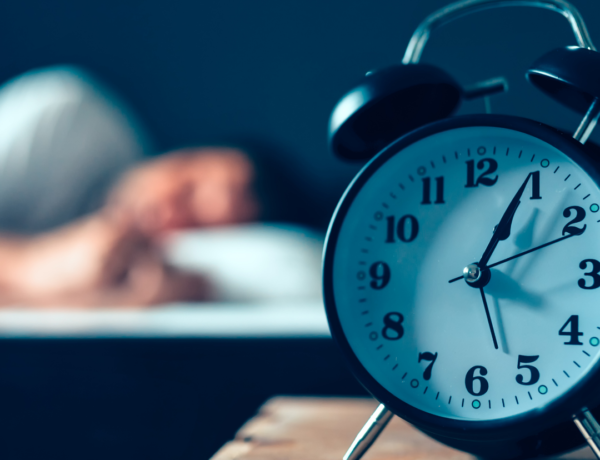I. What are the causes of fatigue and stress?
- Family situations:
Marriages, finances, children, childhood traumas, work, etc. These situations have a definite effect not only psychically but physically, especially on the adrenal glands.
- Lack of exercise:
(“The Instinct to Heal: Curing Stress, Anxiety and Depression Without Drugs and Talk Therapy” by David Servan-Schreiber)A study comparing Zoloft and exercise: after 4 months, the results were exactly the same for the group taking Zoloft and the group that exercised. But after one year, 1/3 of the patients treated with Zoloft were again depressed, while 92% of the patients who exercised kept their mood stable. Exercise acts on the physical and also on the mental, by boosting the production of endorphins.
- Inappropriate diet:
To have energy, you must eat well: proteins, saturated fats, broths, lacto-fermented vegetables, offal, vegetables and fruits; organic and/or free-range foods. Avoid: sugar, alcohol, caffeine, refined products, hydrogenated oils, etc. and above all adapt the diet to the particular needs and digestive capacities of each individual.
- Chronic digestive fatigue:
Someone who digests poorly will inevitably feel tired, because the digestive process uses a lot of energy. It is therefore necessary to improve all the digestive stages: chewing, sufficiently acid stomach, B.V., liver, small intestine, colon. Eliminate food intolerances and clean up infections.
- EMC:
Electromagnetic fields: constant exposure creates chronic fatigue, contributes to porous bowel syndrome, and disrupts the immune system.
- Blood sugar imbalances:
The more sugar levels fluctuate, the more it strains the pancreas and adrenals. To stabilize blood sugar levels, eat at regular times; avoid sugar; eat protein and fat at every meal.
- Anemias:
Numerous and often misidentified, not only due to iron deficiencies, but also B vitamin deficiencies and porous bowel syndrome.
- Lack of sleep:
The body needs a minimum number of hours of sleep to regenerate. This number of hours varies from person to person. It is important to go to bed and get up at approximately the same time. It is also important to go to sleep before midnight to follow the natural rhythm of the cortisol/adrenal glands.
- Pollution:
From air, water, food, from pesticides, fungicides, insecticides, heavy metals, drugs, stimulants, painkillers, antidepressants, hydrogenated oils, dyes, preservatives… A study conducted in 2004 in the United States by the CDC: 2500 people tested for 210 chemicals. On average 86 chemicals were found, including :
- Organochlorine insecticides (DDT, chlordane, banned for many years): affects the reproductive system; carcinogenic.
- Furans: derived from plastics: toxic for the endocrine system.
- Dioxins: PVC derivatives: cancer and reproductive system.
- Phthalates: derived from plastics, used in cosmetics; toxic for the nervous system and can cause birth defects.
- Volatile substances found in gasoline, varnishes, glues: poisonous for the nervous system and carcinogenic.
- Metals: lead: low IQ; mercury: developmental delays; arsenic: affects behavior; cadmium: carcinogenic.
These 86 chemicals have been found in the brain, nervous system, endocrine glands, lungs, liver, bloodstream, stomach, intestines, kidneys, and skin.
- Drugs:
They all have side effects. E.g.: statins create fatigue in the brain and muscles; antidepressants put a kind of “lid” on the emotions and create fatigue; anti-tensives slow down the whole system.
- Chronic Infections:
- Lyme disease is now an epidemic, caused by laborrelia, and often also babesia. It is difficult to be tested properly. It requires specialized laboratories. Ex: Barla laboratory in Nice.
- Viruses: herpes, EBV, CMV, hepatitis, etc. are very often the cause of chronic fatigue.
- Bacteria: H. pylori, e. coli, clostridia, are underlying infections (cold infections): affect teeth, bladder, intestines, stomach and are very common.
- Yeasts: candida albicans or other yeasts are sources of fatigue, and chronic digestive problems.
SIBO : Small Intestinal Bacterial Overgrowth
- Mitochondria :
Cells that produce energy; they can no longer function properly if they are polluted (toxic, heavy metals) or if they lack minerals, enzymes, and vitamins.
- Vitamines et déficiences minérales :
Le corps a besoin de vitamines et minéraux pour fonctionner au mieux. Les minéraux sont essentiels pour que les cellules communiquent entre elles. Je recommande le plasma de Quinton. Les vitamines sont des cofacteurs retrouvés dans chaque fonction cellulaire. Je recommande l’huile de foie de morue.
- Les surrénales :
2 petites glandes au dessus des reins. Elles gèrent le stress ; contrôlent les réactions « fight or flight ». Secrètent des hormones : épinéphrine, norépinephrine, aldostérone,cortisol, et ACTH. Contrôlent l’eau dans le corps, et le taux de sucre sanguin. Contrôlent l’inflammation du corps et le système immunitaire. La medecine allopathique ne reconnaît pas la fatigue surrénalienne saufen cas de maladie d’Addison (hypo) ou syndrome de Cushing (hyper). Probablement 90% de la population souffre de fatigue surrénalienne, maisne le sait pas. Il faut les tester correctement.
- Symptômes : Fatigue, maux de dos, tension artérielle basse, fatigue cardiaque, gaz et ballonnements, douleurs abdominales, manque d’appétit, nausées, anorexie, vomissements, constipation alternée avec diarrhée, perte de poids, respiration superficielle, étourdissements, asthénie, somnolence, insomnie, perte de mémoire, humeurs instables, anémie, hypoglycémie, métabolisme ralenti, envie de sel.
- Plus les surrénales sont affaiblies, moins on supporte la caféine.
- Tester avec le test de Ragland et la salive.
- Hypo-thyroidism: a great cause of fatigue!
Yellowish skin, rough, brittle nails with white patches, cold extremities, hair loss, poor perspiration, joints that crack and lack flexibility; fat deposits around the hips and abdomen, feeling of cold, constipation, fatigue, drowsiness, melancholy, asthenia, headaches; slowed metabolism, weight gain… What to do? Be tested properly, and find the causes: porous intestine, food intolerances, cold infections, heavy metals, adrenal problems; unbalanced hormones, etc.
II / What to do?
- Eat REAL food: pasture-raised animals; organic fruits and vegetables; eat protein and animal fats to maintain blood sugar and repair adrenals. VERY IMPORTANT!
- Exercise to your level, and definitely do not push.3. Sleep, and rest to restore the adrenal glands and nervous system.
- Manage stress: Meditation, yoga, tai chi, relaxation and deep breathing.6. Remove possible sources of stress in life!!!7. Test properly: intolerances, blood tests for infections, saliva tests for adrenals and hormones; stool test for digestion, etc.
- Once a proper diet is in place, then specific supplements for adrenals, thyroid, digestive system, etc. can be added.










No Comments